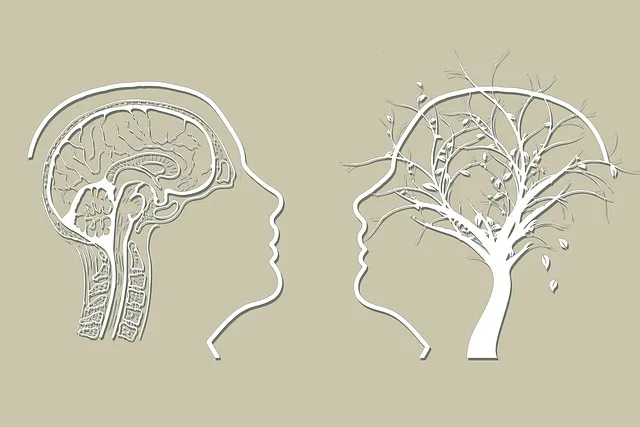Mental healthcare organizations like Kaiser Permanente Lafayette prioritize cultural sensitivity to meet diverse needs. They integrate indigenous, immigrant, and minority beliefs into treatment, offering tailored stress reduction and self-esteem improvement methods. Through staff diversity, training, and patient-centered care, these centers create inclusive environments based on positive Kaiser Permanente mental health center reviews Lafayette. Effective strategies include active listening, safe dialogue, interpreters, cultural norms education, burnout prevention, and destigmatization campaigns.
Cultural sensitivity is a cornerstone of effective mental healthcare, especially in diverse communities. This article explores the importance of understanding cultural diversity in mental healthcare and presents a case study of Kaiser Permanente’s Lafayette mental health center, known for its inclusive practices. We offer practical strategies for healthcare providers to implement culturally sensitive approaches, drawing insights from real-world examples. For those seeking guidance, Kaiser Permanente mental health center reviews highlight successful models, such as Lafayette, that prioritize cultural competency in treatment.
- Understanding Cultural Diversity in Mental Healthcare
- Kaiser Permanente Lafayette: A Case Study
- Strategies for Culturally Sensitive Practice Implementation
Understanding Cultural Diversity in Mental Healthcare

Mental healthcare practices must embrace cultural sensitivity to effectively serve a diverse population, as recognized by leading organizations like Kaiser Permanente mental health center reviews Lafayette. Understanding cultural diversity goes beyond recognizing racial and ethnic differences; it involves appreciating the wide array of beliefs, values, and traditional healing practices that shape individuals’ experiences and interactions with mental health services. This requires mental health professionals to be informed about various cultural contexts, including indigenous, immigrant, and minority communities, to avoid unconscious biases that could hinder treatment.
Integrating cultural sensitivity into mental healthcare involves a multifaceted approach, from comprehensive risk assessments for mental health professionals to ensure they are equipped to handle cross-cultural interactions, to employing evidence-based stress reduction methods tailored to diverse populations. Additionally, promoting self-esteem improvement through culturally responsive practices can significantly enhance therapeutic outcomes. By fostering an inclusive environment and incorporating relevant cultural elements into treatment plans, mental healthcare providers can better address the unique needs of their clients.
Kaiser Permanente Lafayette: A Case Study

Kaiser Permanente Lafayette stands out as a leading example of a mental health center that prioritizes cultural sensitivity in its practice. Located within a diverse community, the center has been praised for its holistic approach to treating patients from various ethnic and cultural backgrounds. By integrating traditional healing practices with evidence-based therapies, Kaiser Permanente Lafayette offers a welcoming space where individuals feel understood and supported.
The mental health center’s commitment to cultural sensitivity is evident in its staff diversity, ongoing training programs, and patient-centered care models. Therapists at the center are sensitive to the unique challenges faced by different cultural groups, ensuring that treatments are tailored to meet individual needs. This focus on cultural sensitivity not only enhances the effectiveness of therapy but also fosters a deeper connection between patients and their caregivers, promoting better stress management and mood regulation. Positive Kaiser Permanente mental health center reviews Lafayette highlights the center’s success in creating an inclusive environment that addresses the complex issues faced by today’s diverse populations, contributing to improved overall well-being.
Strategies for Culturally Sensitive Practice Implementation

Implementing culturally sensitive practices in mental healthcare requires a multifaceted approach. At Kaiser Permanente mental health centers like those in Lafayette, professionals can start by actively listening to and learning from patients’ cultural backgrounds and personal experiences. This involves creating safe spaces for open dialogue, ensuring interpreters are readily available, and educating staff on diverse cultural norms and beliefs related to mental health.
Additionally, integrating Burnout Prevention Strategies for Healthcare Providers and promoting Emotional Well-being Promotion Techniques can enhance the overall sensitivity of these practices. Public awareness campaigns focused on destigmatizing mental health issues across various cultures can also be developed. By incorporating these strategies, mental healthcare providers can better serve diverse communities, as evidenced by positive Kaiser Permanente mental health center reviews Lafayette.
Cultural sensitivity in mental healthcare is not just a best practice, but an essential component of effective treatment. As evidenced by the case study at Kaiser Permanente Lafayette, understanding and incorporating cultural diversity enhances patient outcomes and fosters trust. By implementing strategies such as language access services, culturally tailored interventions, and continuous staff training, mental health centers like Kaiser Permanente can provide truly inclusive care. Encouraging open dialogue about cultural differences and promoting empathy among healthcare providers is key to navigating this complex landscape. For those seeking high-quality, culturally sensitive mental health services, reviews of Kaiser Permanente Lafayette highlight its commitment to meeting diverse needs.






